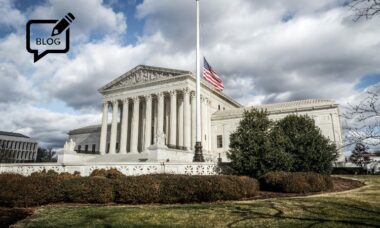 The US Fourth Circuit Court of Appeals recently decided tetrahydrocannabinol acetate (THCO) was legal under current federal law, disregarding an interpretation by the Drug Enforcement Administration (DEA) that would have made all synthetically made hemp-derived variations of THC scheduled drugs under the Controlled Substances Act (CSA).
The US Fourth Circuit Court of Appeals recently decided tetrahydrocannabinol acetate (THCO) was legal under current federal law, disregarding an interpretation by the Drug Enforcement Administration (DEA) that would have made all synthetically made hemp-derived variations of THC scheduled drugs under the Controlled Substances Act (CSA).
The decision comes as part of a larger verdict on an employment issue, which means it is not binding in itself. But the decision suggests the Fourth Circuit Court, one of the courts that sit just below the US Supreme Court, would make the same argument if a case specifically on the legality of intoxicating hemp-derived cannabinoids (IHDCs) such as THCO was to come before it.
It also matches a similar ruling made by the Ninth Circuit Court of Appeals, also a step below the Supreme Court in the US court hierarchical system, in a trademark ruling involving the similarly made delta-8 THC. In that ruling, the Ninth Circuit Court also said delta-8 was legal under the Agricultural Improvement Act of 2018 (2018 Farm Act) as it was a product derived from hemp that had less than the maximum permitted amount of delta-9 THC (0.3%).
Courts do not have to defer to federal agencies
So if two of the circuit appeals courts would take the position that IHDCs are legal under the 2018 Farm Act as currently written, then the question becomes whether the Supreme Court would also support such a position.
Part of the answer to that may be revealed in the Fourth Circuit Court decision, where the judges suggest that while they can listen to an agency on its area of regulation, they no longer have to defer to it. This is a reference to the so-called Chevron Doctrine, a previous ruling based on a 1984 decision in the case Chevron vs Natural Resources Defense Council.
That effectively says courts should defer to the interpretations of expert federal agencies regarding ambiguous laws the agencies are required to implement, as long as the agency’s interpretations are ‘reasonable’. But this was recently overturned by a new Supreme Court decision, and the Fourth Circuit Court has clearly taken that to heart in formulating the arguments justifying its decision in this later case.
Signs point to Supreme Court agreeing, but nothing is certain
This all suggests that the Supreme Court would also view the DEA’s interpretation of the legality of IHDCs as not paramount and would, as the Fourth Circuit says, take the clearest or most reasonable interpretation of the 2018 Farm Act.
But according to cannabis law expert Rod Kight, who also noted the Supreme Court reference in the Fourth Circuit Court decision, there is a much wider range of legal issues involved with any Supreme Court decision on the legality of IHDCs.
Although the presumption would be that the new Chevron decision would leave the Supreme Court free to make its own determination of the legality of IHDCs based on the language in the Farm Act as it stands, that in no way means the Supreme Court will definitively land on the side of IHDCs being legal. Still, it is an interesting thought exercise for the time being – one that may prove very important later on down the line.
– Freddie Dawson CannIntelligence staff
Photo: Tim Mossholder







